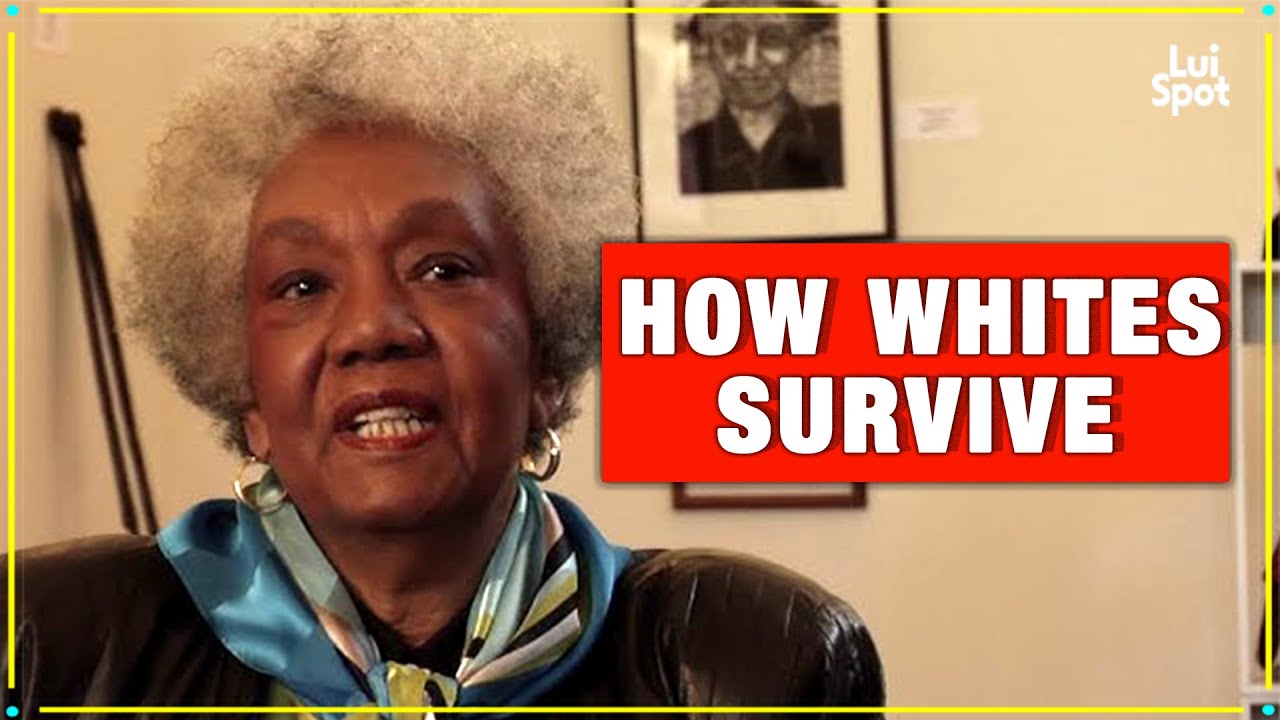Warning! How White People Keep Black People Poor To This Day! | Black History | Black Culture
Summary
TLDRThe video discusses the systemic challenges that have kept Black people in poverty, particularly in nations dominated by white populations. It explores historical factors such as slavery, Jim Crow laws, discriminatory housing practices, and limited access to education, healthcare, and wealth-building opportunities. Policies like the GI Bill and redlining exacerbated the racial wealth gap. The video also highlights ongoing racial biases in job markets and property ownership, and questions whether Black people can ever achieve economic parity. It encourages reflection on how these systemic issues can be addressed moving forward.
Takeaways
- 📉 Black people often remain poor in predominantly white nations due to systemic barriers that have existed for centuries.
- 🔒 After the abolition of slavery, Jim Crow laws and segregation limited the economic opportunities for African-Americans.
- 🏠 Discriminatory housing practices, such as redlining and racial housing covenants, restricted black families from building wealth through homeownership.
- 📚 Access to quality education and job opportunities has been limited for black Americans due to racial discrimination, hindering upward mobility.
- ⚖️ Historic policies like the reversal of General Sherman's Field Order 15 and the mishandling of the GI Bill denied black Americans opportunities for wealth accumulation and reparations.
- 🚫 The disproportionate targeting of black individuals in the criminal justice system has perpetuated cycles of poverty and disenfranchisement.
- 🏥 African-Americans face disparities in healthcare access, which have long-term impacts on the community’s well-being and economic stability.
- 🌾 Black land ownership has significantly declined, from 14 million acres in the 20th century to just 1.1 million acres today, due to systemic dispossession tactics.
- 📄 Bias in the job market, such as fewer callbacks for applicants with racially identifiable names, continues to limit black Americans' career opportunities.
- 🔄 Systemic inequality continues to impact black Americans, perpetuating the racial wealth gap and limiting economic advancement even in modern times.
Q & A
What is the central claim of the video transcript?
-The central claim of the video transcript is that black people living in predominantly white nations often remain poor due to systemic barriers and historical injustices designed to prevent them from achieving economic prosperity.
How did Jim Crow laws affect African-American economic progress after emancipation?
-Jim Crow laws enforced segregation and discrimination, undermining African-Americans' ability to achieve financial stability and prosperity by limiting their access to quality education, housing, and economic opportunities.
What impact did General Sherman's Field Order 15 have on black land ownership, and why was it reversed?
-General Sherman's Field Order 15 sought to allocate 400,000 acres of confiscated Confederate land to black families, providing a path toward economic empowerment. However, it was reversed by President Andrew Johnson, who returned the land to former slave owners, halting this opportunity for African-Americans to gain wealth.
What role did the GI Bill and Social Security play in maintaining systemic racial inequalities?
-Although the GI Bill and Social Security were designed to uplift Americans post-World War II, racial discrimination in housing and financial practices, such as redlining and racial covenants, prevented black Americans from fully benefiting, thereby perpetuating the racial wealth gap.
How has redlining affected black Americans' wealth accumulation?
-Redlining restricted black families from accessing loans and financial resources, limiting their ability to purchase homes and build intergenerational wealth. This discriminatory practice reinforced economic disparities and widened the wealth gap.
What challenges do black people face in the job market today according to the transcript?
-Black individuals face racial discrimination in the job market, particularly during the application process, where applicants with racially identifiable names experience significantly fewer callbacks, hindering their ability to secure jobs and build wealth.
How did black land ownership decline so drastically over time?
-Black land ownership has declined from an estimated 14 million acres in the early 20th century to just 1.1 million acres today. This was largely due to discriminatory practices such as heirs' property, property tax sales, and the Torrens Act, which facilitated land dispossession.
How do property tax sales and heirs' property laws contribute to black land dispossession?
-Property tax sales disproportionately affect vulnerable black landowners, pushing them into debt and leading to land loss. Heirs' property laws, which divide land ownership among family members, make the land vulnerable to exploitation and forced sales, further reducing black land ownership.
What is the significance of President Andrew Johnson's reversal of General Sherman's land order?
-President Andrew Johnson's reversal of General Sherman's Field Order 15, which would have provided black families with land after the Civil War, was significant because it destroyed an opportunity for economic empowerment and wealth accumulation for freed slaves, perpetuating their financial struggles.
What suggestions does the transcript offer for addressing the systemic economic barriers faced by black people?
-The transcript suggests that significant systemic reforms, including reparations, protections in the job market, and policies that address ongoing discrimination in education, housing, and healthcare, are necessary to help black people achieve economic equality and overcome generational poverty.
Outlines

Этот раздел доступен только подписчикам платных тарифов. Пожалуйста, перейдите на платный тариф для доступа.
Перейти на платный тарифMindmap

Этот раздел доступен только подписчикам платных тарифов. Пожалуйста, перейдите на платный тариф для доступа.
Перейти на платный тарифKeywords

Этот раздел доступен только подписчикам платных тарифов. Пожалуйста, перейдите на платный тариф для доступа.
Перейти на платный тарифHighlights

Этот раздел доступен только подписчикам платных тарифов. Пожалуйста, перейдите на платный тариф для доступа.
Перейти на платный тарифTranscripts

Этот раздел доступен только подписчикам платных тарифов. Пожалуйста, перейдите на платный тариф для доступа.
Перейти на платный тарифПосмотреть больше похожих видео

The Moment LARRY ELDER changed DAVE RUBINS Mind Forever (Systemic Racism)

why whites say black people genetics is bad - dr. frances cress

2018 Women of the World Poetry Slam - FreeQuency "Dear White People"

Indigenous Over-Incarceration

ABC Tried to Bury This James Baldwin Interview. Four Decades Later, It's Blisteringly Relevant.

White Supremacy And Its Sinister Ties Left Them SHOCKED
5.0 / 5 (0 votes)
